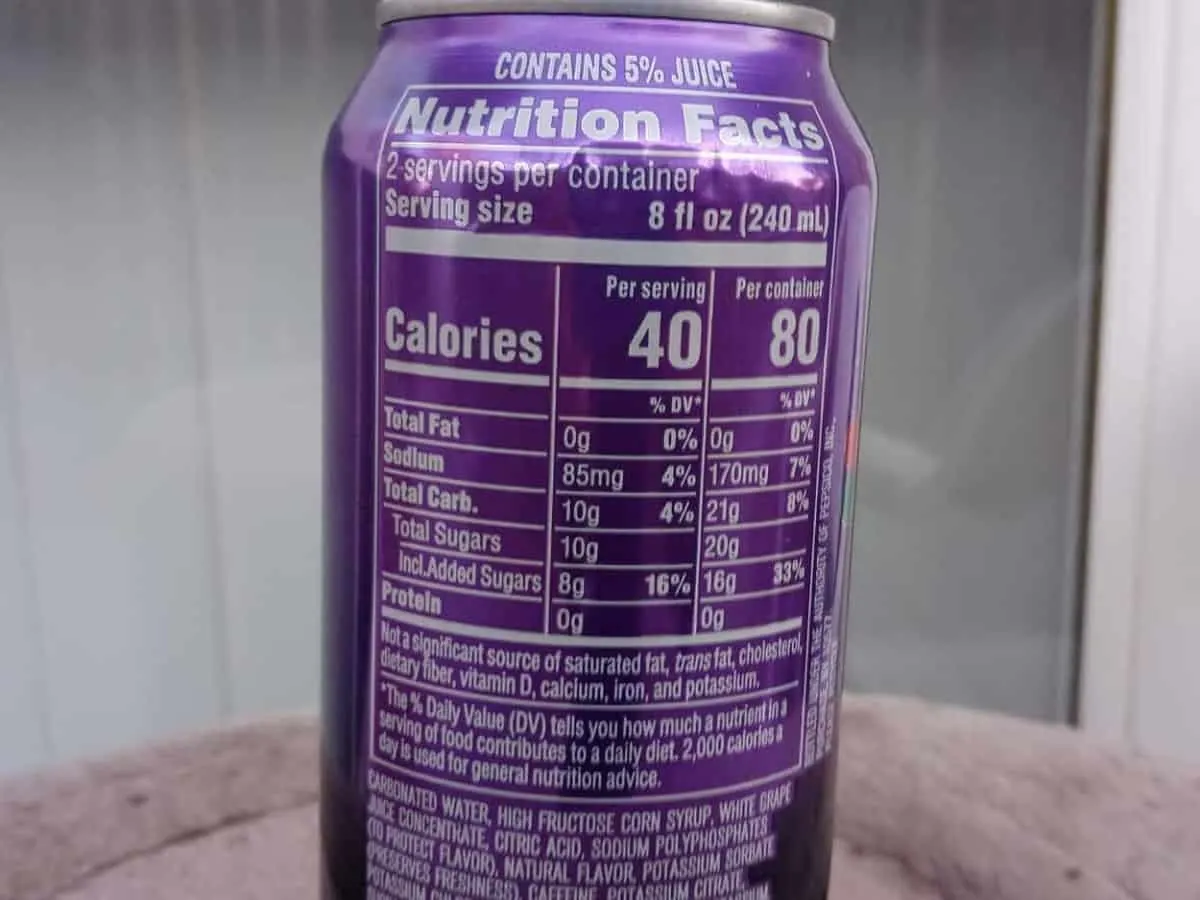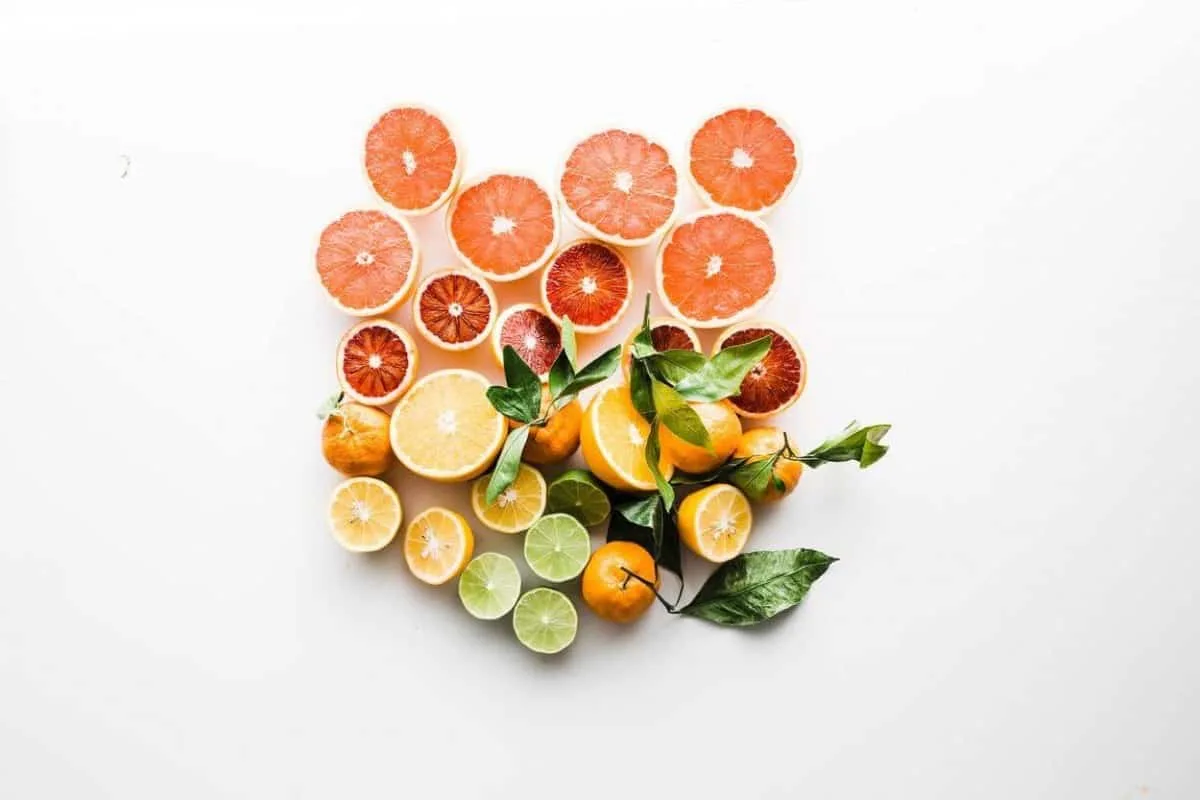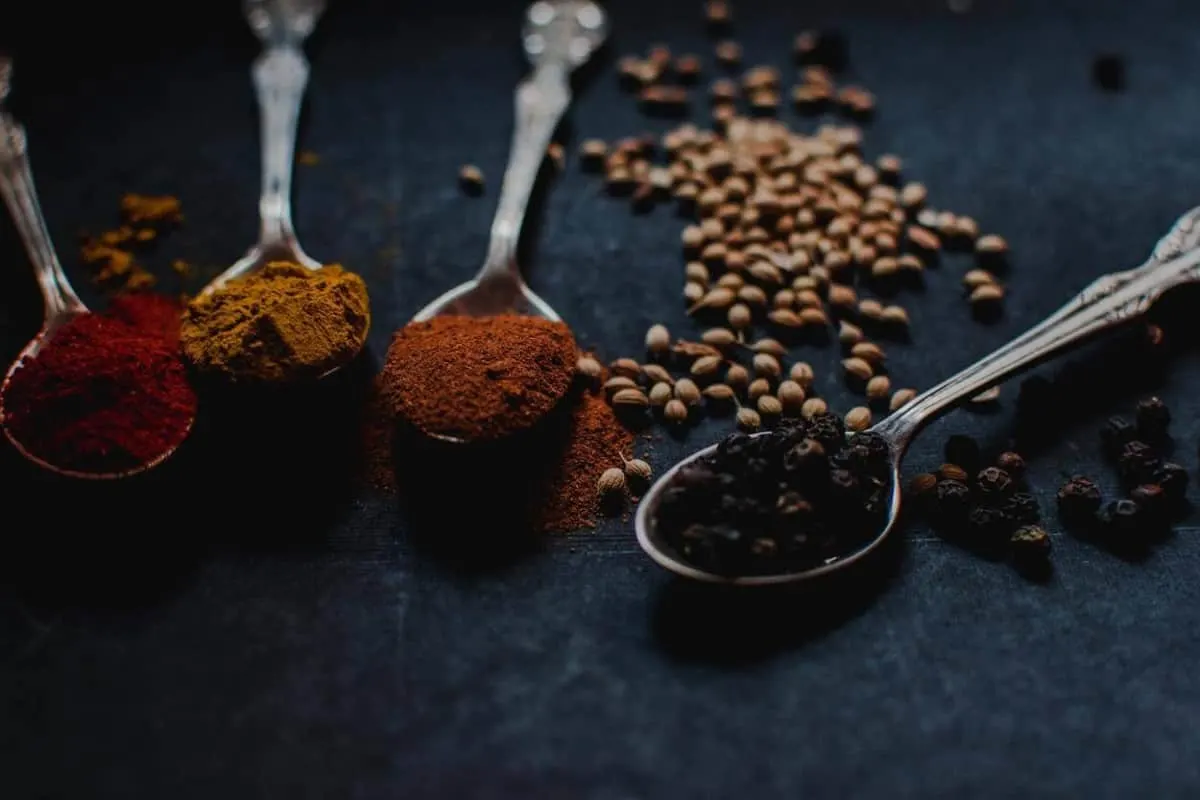
In summary, Mountain Dew Kickstart is suitable for vegans because it doesn’t have any trace of ingredients derived from animals.
Committing to a certain type of diet requires effort and vigilance in inspecting the food and beverage you consume.
You need to make sure everything that goes into your mouth is vegan so that it won’t disrupt your progress.
If you’re an avid caffeinated-beverage drinker, specifically Mountain Dew Kickstart, this article is for you. Here, you will read about whether Kickstart is vegan or not.
Stick around for a detailed discussion about Mountain Dew Kickstart and learn how this drink may affect you if you’re following a certain diet.
Let’s begin!
Page Contents
What type of drink is Mountain Dew Kickstart?
Mountain Dew Kickstart is an energy drink. It contains caffeine and other ingredients that are intended to boost energy levels. The product is formulated with caffeine, vitamins B and C, and electrolytes, which are intended to provide a quick boost of energy and hydration.
The combination of these ingredients is meant to help people stay awake and alert, especially during early mornings or late nights. However, it is important to remember that everyone’s tolerance to caffeine may vary, and it is always a good idea to consume these products in moderation.
Mountain Dew Kickstart Nutrition Facts

As an overview, here is the nutritional information of Mountain Dew Kickstart 16 fl. oz:
| Nutrients | Amount |
| Caffeine | 90 mg |
| Protein | 0 mg |
| Energy | 80 calories |
| Sodium | 170 mg |
| Carbohydrate | 21 mg |
| Sugars | 20 mg |
Just a side note, remember that some of these values may vary by one to two mg, depending on the flavor of Mountain Dew Kickstart you’re consuming.
Take a close look at the nutrition facts—no noticeable information about non-vegan content, right? This is a good sign that this drink is safe for your vegan diet.
Mountain Dew Kickstart Ingredients
Moving on, below are the ingredients list of Mountain Dew Kickstart. Read through each list carefully to see if they are vegan-friendly or not.
- Caffeine
- Potassium sorbate
- Natural flavor
- Sodium polyphosphates
- Citric Acid
- White grape juice concentrate
- High fructose corn syrup
- Carbonated water
- Potassium citrate
- Potassium chloride
- Gum arabic
- Sucralose
- Acesulfame potassium
- Calcium disodium EDTA
- Sucrose acetate isobutyrate
- Salt
- Blue 1
- Red 40
After cross-checking with the website of People for the Ethical Treatment of Animals (PETA), none of the ingredients in Mountain Dew Kickstart are derived from animals.
In short, Mountain Dew Kickstart is vegan-approved!
If you’re still not convinced, keep reading and we’ll narrow our focus to some of the ingredients on this list.
For an in-depth discussion of Mountain Dew Kickstart’s ingredients, read this article.
Is Citric Acid Vegan-Friendly?

Citric acid is vegan-friendly since it can be extracted from natural sources.
Citric acid is mostly generated from citrus fruits and used in beverages as a flavoring and preservative.
Citric acid can be found in a variety of natural sources, including:
- Limes
- Oranges
- Lemons
- Tangerines
- Grapefruits
Citric acid can be found in a variety of goods that we consume and use every day, including meals, beverages, medicines, nutritional supplements, and even disinfectants.
Citric acid can also be manufactured synthetically if the natural sources tend to be more expensive.
Aside from natural properties in food preservation, citric acid has several important benefits. It helps your body break down food into energy and it improves the absorption of nutrients in the body.
This is beneficial because this method does not require too much stomach acid in digestion, having fewer negative impacts such as bloating and discomfort.
Are the Ingredients in Mountain Dew Kickstart Vegan?
Below, I’ll label the ingredients of Mountain Dew Kickstart so you’ll have a working idea of where it comes from and its purpose in the formulation of the beverage.
| Ingredients | Source | Properties | Vegan? |
| High fructose corn syrup | Plant based | Derived from corn syrup sweetener | Yes |
| Caffeine | Synthetic | Stimulant | Yes |
| Calcium disodium EDTA | Synthetic | Preservative and flavoring agent | Yes |
| Acesulfame potassium | Synthetic | Artificial sweetener | Yes |
| Citric acid | Plant based/synthetic | Flavoring and preservative | Yes |
| Gum arabic | Plant based | Stabilizer | Yes |
| Potassium sorbate | Synthetic | Preservative | Yes |
| Sucrose acetate | Plant based/synthetic | Stabilizer | Yes |
| Red 40 | Synthetic | Food dye/additive | Yes |
| Blue 1 | Synthetic | Food dye/additive | Yes |
One of the most common animal-derived ingredients in beverages and energy drinks is taurine.
So if you’re on a vegan diet, make sure that the manufacturers of your drink use synthetic taurine that is not extracted from animals so that it’ll remain vegan-friendly.
For instance, Red Bull, Monster, and Rockstar have confirmed that their taurine ingredients are vegan.
Watch this informative video to learn some tips for identifying vegan drinks.
Are the Colorings in Mountain Dew Kickstart Vegan-Friendly?

Mountain Dew Kickstart’s food colorings, Red 40 and Blue 1, are vegan because they’re synthetically created. However, these food colorings are not made cruelty-free because they have been tested on animals.
Some don’t like the idea of synthetic products, but don’t worry about synthetic manufacturing because this is a very common practice.
In fact, the FDA has approved these food colorings to be safe for consumption.
To briefly define, Red 40 is a petroleum-based color additive that is commonly found in cereals, beverages, dairy-based products, and desserts. Meanwhile, Blue 1 which is also known as ‘Brilliant Blue,’ comes from an oil-based source. This is a common additive in syrups and frozen dairy desserts.
While both of these colorings are vegan according to PETA’s list, these are not necessarily cruelty-free.
According to a vegan community online, RED 40 is frequently tested on animals so it’s definitely not cruelty-free. Similarly, Brilliant Blue is also routinely tested on mice, rats, and dogs.
As we know, many people choose a vegan diet not only for its health benefits but because they utterly love and respect animals.
To most vegans, especially “ethical vegans,” it is crucial that no animals have been harmed or injured in making the product they are consuming.
This is why I made sure that I mentioned here that these food colorings are not made in a cruelty-free manner.
Now, let’s take a look at another primary ingredient in this flavored beverage: caffeine.
Is Caffeine Vegan?
Yes it is! Caffeine is derived from coffee beans, which you know is a plant source. You don’t have to worry about the caffeine content of any energy drink being unsafe for vegans because its source is plant-based.
Coffee beans are roasted seeds of a plant. There’s no animal involved from start to finish—not even animal by-products.
So you can definitely rest assured that the caffeine in Mountain Dew Kickstart is vegan-friendly.
How Much Caffeine Does Mountain Dew Kickstart Have?

Mountain Dew Kickstart has 90 mg of caffeine per 16 fl. oz. can, which is a fairly small amount compared to other flavored-beverage brands.
For comparison, an 8.4 fl. oz. can of Red Bull contains 80 mg of caffeine, whereas a 16 fl. oz. can of Monster contains 160 mg of caffeine.
Because it has little to moderate caffeine concentration, I would consider having a can of Mountain Dew Kickstart for a short energy boost. I would also recommend it to people who have low caffeine tolerance.
The only drawback is that you can’t expect it to sustain your energy or sharpen your mental focus for longer periods of time.
If you’re a frequent consumer of the soda brand Mountain Dew, I would also suggest that you give Kickstart a try because there are benefits to consuming caffeinated beverages.
For instance, caffeine is known to enhance physical performance and increase intellectual processes. Aside from that, some research found that caffeinated beverages can increase volleyball players’ efficiency and athletic performance.
Keep in mind, caffeine should always be consumed responsibly and in moderation.
For healthy adults, the FDA recommends a daily caffeine intake of no more than 400 mg. Any excess to this amount may result in caffeine overdose, which can have any of the following symptoms:
- dizziness
- dehydration
- headaches
- shakiness
- restlessness
To be safe, manage and limit your intake of caffeinated products while drinking Mountain Dew Kickstart.
Now, let’s take a look at Kickstart’s sugar content.
Does Mountain Dew Kickstart Have Sugar?

Mountain Dew Kickstart has 20 g of sugar per 16 fl. oz serving, a relatively high amount when compared to the daily recommended serving of sugar for women (25 g).
For guidance, the American Heart Association advises a maximum daily sugar intake of 25 grams for women and 36 grams for men. Based on these figures, you can safely say that one can of Mountain Dew Kickstart is still under the daily limit for both genders.
However, if you drink two cans of Mountain Dew Kickstart in a day, you will definitely surpass the limit.
While a little sugar every now and then is fine, a high sugar intake on a regular basis can lead to health problems such as:
- weight gain
- diabetes
- cavities
- fatty liver
- heart disease
- risk of depression
You may also experience a sugar crash if you consume a lot of sugar in a short span of time, so limit yourself to one can of Mountain Dew Kickstart per day to avoid this.
Does Mountain Dew Kickstart have artificial sweetener?
Mountain Dew Kickstart does have artificial sweeteners. The exact sweeteners used in the product may vary by flavor, but common artificial sweeteners used in Mountain Dew Kickstart include high fructose corn syrup, aspartame, and acesulfame potassium.
Aspartame is a low-calorie artificial sweetener used as a sugar substitute in many food and drink products. Acesulfame potassium (Ace-K) is a calorie-free artificial sweetener that is used as a sugar substitute. Both are approximately 200 times sweeter than sugar.
Is the Sugar in the Mountain Dew Kickstart Vegan-Friendly?
Mountain Dew Kickstart’s primary sugar source is high fructose corn syrup.
The sugar in Mountain Dew Kickstart originates from high fructose corn syrup, a corn starch-derived sweetener, so it is vegan-friendly.
In general, the sugar we consume comes from plant-based sources such as sugar canes so it’s highly unlikely that the sugars and sweeteners will be derived from animals.
Of course, if you still have doubts you may always reach out to the customer service of the beverage manufacturers to ask. If not, you can opt to buy sugar-free energy drinks instead.
Is Mountain Dew Kickstart Keto-Friendly?
Mountain Dew Kickstart is not keto-friendly because it contains a lot of calories, carbohydrates, and sugar.
A keto diet requires you to consume less carbs and more fat for energy. As a result, foods and beverages such as potatoes, bread, and sugary drinks like Mountain Dew Kickstart are not allowed in a keto diet.
There are, however, low-carb, zero-calorie energy drinks like Bang Energy Drink that is ideal for those on a keto diet.
Is Mountain Dew Kickstart Gluten-Free?
Based on the nutrition facts and ingredients lists, Mountain Dew Kickstart does not contain compounds or traces of wheat, barley, or rye products, so we can safely conclude that it is gluten-free.
If you have gluten sensitivity, you can incorporate Mountain Dew Kickstart into your diet because it does not contain gluten.
I suggest you consume it in the morning because the caffeine can help you start your day feeling energized.
Just keep in mind that you should limit your consumption of Mountain Dew Kickstart to one can per day to stay within the recommended sugar limit.
What is the difference between Mountain Dew and Mountain Dew Kickstart?
Mountain Dew and Mountain Dew Kickstart are both products of the Mountain Dew brand, but they have some notable differences. Mountain Dew is a carbonated soft drink known for its citrus flavor and high sugar content. It is a traditional soda that is enjoyed as a standalone beverage.
On the other hand, Mountain Dew Kickstart is marketed as an “energizing soda” or “sparkling juice beverage.” It contains a blend of caffeine, vitamins, and fruit juice, aiming to provide a combination of energy and hydration. Kickstart is often perceived as a cross between an energy drink and a fruit-flavored soda.
Is Mountain Dew Kickstart considered soda?
Mountain Dew Kickstart is often categorized as a soda or a soft drink. While it contains carbonation and flavors similar to traditional sodas, it also incorporates additional ingredients such as caffeine, vitamins, and fruit juice. The inclusion of these elements sets it apart from regular soda.
However, the classification of Mountain Dew Kickstart may vary based on regional definitions or individual perspectives. Some may consider it an energy drink due to its added caffeine and marketing claims, while others may view it as a flavored soda with functional attributes.
Final Thoughts
To summarize, the beverage ingredients mentioned on Mountain Dew Kickstart are definitely vegan-friendly, while the colorings in Mountain Dew Kickstart raise some ethical concerns because they are not cruelty-free.
I think the final say on whether Mountain Dew Kickstart is vegan-safe or not is ultimately determined by your perspective on veganism.
If you’re a vegan for health reasons, then I think Mountain Dew Kickstart is absolutely okay for you to consume. But if you strictly believe in cruelty-free manufactured products, then I totally respect that too.
The important thing here is that you know all the facts on which you can base your decision and diet.
I hope the information in this article helped you make an informed decision. Cheers!
